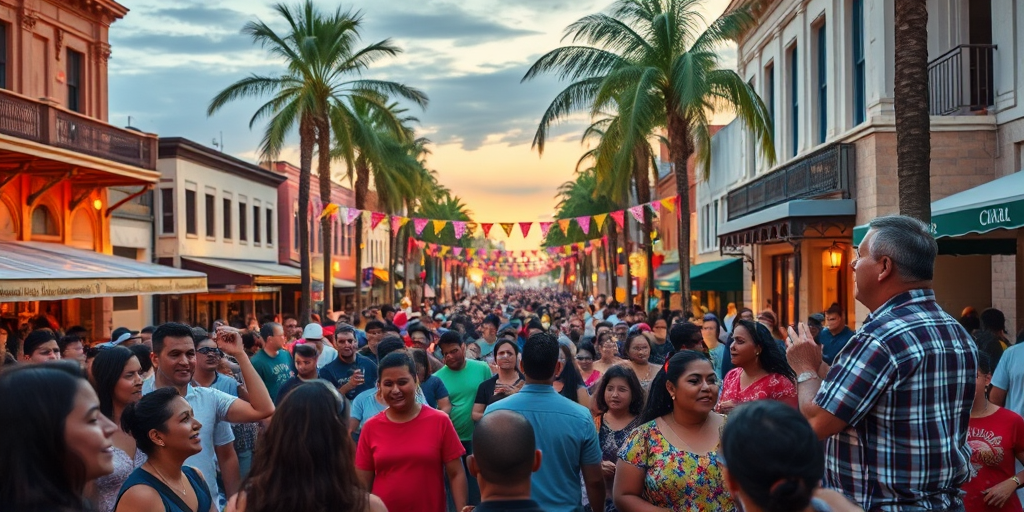City Cancels Contractor Over Incomplete Public Market Project
The City of Rio Grande Valley has made a decisive move by terminating its contract with the construction company responsible for the public market project, citing unfinished work and unmet deadlines. This development has raised concerns among Valley residents and community interest groups about the future of the project, as well as the impact of such interruptions on local economic growth.
The City’s Decision to Terminate
City officials announced the termination, citing a persistent inability of the contractor to complete the project within the agreed timeframes. The public market was initially seen as a beacon of opportunity for local vendors and community gatherings in South Texas, set to invigorate local commerce. However, ongoing delays and apparent mismanagement have led the city to seek alternative solutions.
Mayor Carlos Ramirez stated, “The decision to cancel this contract was not made lightly. However, the welfare of our community and the responsible use of public funds necessitated this action. We are committed to seeing this project through with new partners who share our vision.”
Background and Community Context
The public market project was launched last year with enthusiasm and support from Valley residents, viewed as a significant step toward revitalizing the local economy. Positioned as a space for cultural exchanges and tourism, the market was expected to boost local businesses and provide a vibrant community hub in the heart of the Rio Grande Valley.
However, the journey has been turbulent, marked by frequent setbacks. Maria Santos, a local vendor eagerly anticipating the market’s opening, shared her disappointment: “This market was going to be a new chapter for so many of us. Hearing about the delays has been frustrating, but we hope the city can find the right partners to make it a reality soon.”
Impact on South Texas and Local Economy
The indefinite pause in the project raises significant economic concerns. The market was not only anticipated to provide opportunities for local vendors like Maria, bringing revenue and jobs, but was also expected to enhance the cultural landscape of South Texas.
Dr. Luis Fernandez, an economist specializing in regional development, emphasized the potential fallout: “These kinds of delays can have a ripple effect, stalling economic momentum. A functioning public market would draw visitors and dollars into the community, something that’s vital for smaller economies like those in the RGV.”
Previous Local Construction Challenges
This situation echoes previous issues faced by public projects in the Valley, where delays and budget overruns have marred development pursuits. The lessons from the past underscore the need for rigorous oversight and robust contract management to prevent such occurrences from impeding local progress.
Community member Javier Torres recalled similar concerns, “We’ve seen this happen before, and it’s disappointing. We need better oversight and clearer accountability so that projects don’t falter halfway through.”
Looking Ahead: New Strategies and Future Implications
City officials are now tasked with finding a new contractor who can pick up where the previous one left off, ensuring that the vision of a public market is brought to fruition. This search comes with the challenge of maintaining public confidence and effectively managing time and resources to limit further delays.
Future implications of sustained delays could deter potential investment in municipal projects, making stakeholders cautious. Nonetheless, Mayor Ramirez remains optimistic, emphasizing transparency in the re-selection process and accountability in future dealings.
“We are implementing stricter measures to ensure future partners meet all contractual obligations. Our priority is to resume work as swiftly and efficiently as possible,” he affirmed.
Balancing Different Perspectives
While the city’s commitment is clear, the perspectives within the community vary. Some residents are understanding of the city’s decision, recognizing the broader necessity, while others are skeptical, urging faster action and more communication from officials.
Community activist Elena Marquez highlighted the need for ongoing dialogue: “Residents need to be kept informed about what’s happening and what’s next. Transparency is paramount, especially when public funds are involved.”
Resources for Valley Residents
For Valley residents interested in following the project’s developments or voicing concerns, the city will be hosting open forums and providing updates on its official website. A dedicated helpline will also connect residents to project coordinators for direct inquiries.
In the words of Commissioner David Gonzalez, “This is a setback, but not the end of our vision for a revitalized RGV. The city is dedicated to renewing momentum and delivering a marketplace our community can be proud of.”
As the Rio Grande Valley navigates this challenge, it reflects a broader narrative of balancing ambition with practical realities, ensuring sustainable economic growth while maintaining community trust and engagement.







